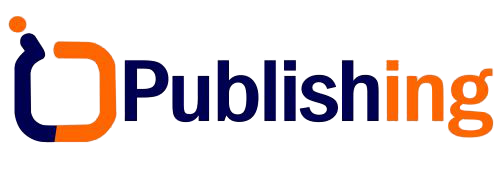Peran Teknologi Informasi Komunikasi dalam Manajemen Rantai Pasok: Systematic Literatur Review
DOI:
https://doi.org/10.47134/jobm.v2i1.19Keywords:
Manajemen rantai pasok, Logistik, Teknologi informasi dan komunikasi, Systematic literatur review, Hubungan bisnis, Smart supply chainAbstract
Manajemen rantai pasok merupakan merupakan suatu hal yang penting dalam sebuah perusahaan dan Teknologi informasi dan komunikasi sangat berperan dalam manajemen rantai pasok saat ini. Tujuan artikel ini mengulas tentang peran TIK dalam manajemen rantai pasok. Metode penelitian yang digunakan systematic literature review terhadap 10 artikel yang terbit pada periode 2019-2024 dan terindeks Scopus. Hasil penelitian menunjukan bahwa metode penelitian yang digunakan kuantitatif, kualitatif dan mix method. Teori yang sering digunakan adalah Contingency theory, Agency theory dan Dynamic capability theory. Pada manajemen rantai pasok, TIK berperan pada bidang pemerintahan, usaha menengah, kecil dan mikro, farmasi dan industri susu. Peran TIK dalam manajemen supply chain pada Industri 4.0 berperan untuk meningkatkan kinerja rantai pasokan dengan menggunakan teknologi canggih yang menghasilkan rantai pasokan cerdas (smart supply chain) dengan blockchain, Teknologi pencetakan 3D, Bigdata, Cyber Physical, AI. Peran TIK Dalam Manajemen Supply Chain Pada Perpsektif Manajerial untuk mengurangi resiko, menghemat biaya dan menciptakan nilai. Penelitian ini merekomendasikan penelitian lebih lanjut mengenai peran TIK dalam SCM pada implementasi di lapangan di berbagai bidang usaha serta di berbagai bidang TIK
References
Abdullahi, H. O., & Mohamud, I. H. (2023). The Impact of ICT on Supply Chain Management Efficiency and Effectiveness: A Literature Review. Journal Europeen Des Systemes Automatises, 56(2), 309–315. https://doi.org/10.18280/jesa.560216
Adjei-Bamfo, P., Maloreh-Nyamekye, T., & Ahenkan, A. (2019). The role of e-government in sustainable public procurement in developing countries: A systematic literature review. Resources, Conservation and Recycling, 142, 189–203. https://doi.org/10.1016/j.resconrec.2018.12.001
Agus, A. A., Yudoko, G., Mulyono, N. B., & Imaniya, T. (2020). E-commerce Platform Performance, Digital Marketing and Supply Chain Capabilities. International Research Journal of Business Studies, 13(1), 63–80. https://doi.org/10.21632/irjbs.13.1.63-80
Asih, H. (2022). Menerapkan Manajemen Rantai Pasok. In Ukmindonesia (Issue January).
Basuki, K. (2019). Penjabaran Teori Kontingensi dan Pengaruh Suatu Moderating Variable Terhadap Suatu Model Serta Peran Mediating Effect Dalam Suatu Perusahaan. ISSN 2502-3632 (Online) ISSN 2356-0304 (Paper) Jurnal Online Internasional & Nasional Vol. 7 No.1, Januari – Juni 2019 Universitas 17 Agustus 1945 Jakarta, 53(9), 1689–1699. www.journal.uta45jakarta.ac.id
Durach, C. F., Kembro, J., & Wieland, A. (2017). A new paradigm for systematic literature reviews in supply chain management. Journal of Supply Chain Management, 53(4), 67–85.
Fayezi, S., O’Loughlin, A., & Zutshi, A. (2012). Agency theory and supply chain management: a structured literature review. Supply Chain Management: An International Journal, 17(5), 556–570.
Gligor, D., Bozkurt, S., Russo, I., & Omar, A. (2019). A look into the past and future: theories within supply chain management, marketing and management. Supply Chain Management, 24(1), 170–186. https://doi.org/10.1108/SCM-03-2018-0124
Habibullah, H., & Pudjianto, B. (2022). Global Trend on Logistics Research: A Bibliometric. Asian Journal of Logistics Management; Vol 1, No 2 (2022): Asian Journal of Logistics ManagementDO - 10.14710/Ajlm.2022.15608 . https://ejournal2.undip.ac.id/index.php/ajlm/article/view/15608
Hailu, R., Gizaw, T., Berhanu, N., Mulugeta, T., Boche, B., & Gudeta, T. (2023). Exploring the role of ICT in pharmaceutical supply chain practices and operational performance in Ethiopia: a structural equation modeling approach. BMC Health Services Research, 23(1). https://doi.org/10.1186/s12913-023-09627-w
Irmayani, N. R., Habibullah, H., Mujiyadi, B., Nurhayu, N., & Erwinsyah, R. G. (2022). Utilization of ICT in Maintaining Social Resilience in Rural Indonesia. 2022 International Conference on ICT for Smart Society (ICISS), 1–7. https://doi.org/10.1109/ICISS55894.2022.9915132
Kieras, T., Farooq, J., & Zhu, Q. (2021). I-SCRAM: A Framework for IoT Supply Chain Risk Analysis and Mitigation Decisions. IEEE Access, 9, 29827–29840. https://doi.org/10.1109/ACCESS.2021.3058338
Kumar, A., Singh, R. K., & Modgil, S. (2020). Exploring the relationship between ICT, SCM practices and organizational performance in agri-food supply chain. Benchmarking, 27(3), 1003–1041. https://doi.org/10.1108/BIJ-11-2019-0500
Kumar, R. (2022). Information and Communication Technology (ICT) effect on Supply Chain Performance in the dairy Industry: A Study in the Indian Context. International Journal of Asian Business and Information Management, 13(1). https://doi.org/10.4018/IJABIM.297850
Kwak, D.-W., Seo, Y.-J., & Mason, R. (2018). Investigating the relationship between supply chain innovation, risk management capabilities and competitive advantage in global supply chains. International Journal of Operations & Production Management, 38(1), 2–21.
Lame, G. (2019). Systematic literature reviews: An introduction. Proceedings of the Design Society: International Conference on Engineering Design, 1(1), 1633–1642.
Menesha, A. H., & Mwanaumo, E. T. (2023). Supply Chain Management Practice and Competitive Advantage: Systematic Literature Review. Logistic and Operation Management Research (LOMR), 2(2), 44–57. https://doi.org/10.31098/lomr.v2i2.1809
Qosasi, A., Permana, E., Muftiadi, A., Purnomo, M., & Maulina, E. (2019). Building SMEs’ competitive advantage and the organizational agility of apparel retailers in indonesia: The role of ICT as an initial trigger. Gadjah Mada International Journal of Business, 21(1), 69–90. https://doi.org/10.22146/gamaijb.39001
Sabahi, S., & Parast, M. M. (2020). Firm innovation and supply chain resilience: a dynamic capability perspective. International Journal of Logistics Research and Applications, 23(3), 254–269. https://doi.org/10.1080/13675567.2019.1683522
Shtawi, H. O. M., Rahim, M. K. I. A., & Al-Rejal, H. M. E. A. (2023). Strategic Supplier Partnership and Customer Relationship and Sustainable Supply Chain Management: The Mediating Role of the ICT in the Jordanian Pharmaceutical Sector in Jordan. Paper Asia, 39(6), 34–47. https://doi.org/10.59953/cpa.v39i6(b).37
Teece, D. J., Pisano, G., & Shuen, A. (1997). Dynamic capabilities and strategic management. Strategic Management Journal, 18(7), 509–533.
Tranfield, D., Denyer, D., & Smart, P. (2003). Towards a methodology for developing evidence‐informed management knowledge by means of systematic review. British Journal of Management, 14(3), 207–222.
Yadav, V. S., Singh, A. R., Raut, R. D., Mangla, S. K., Luthra, S., & Kumar, A. (2022). Exploring the application of Industry 4.0 technologies in the agricultural food supply chain: A systematic literature review. Computers and Industrial Engineering, 169. https://doi.org/10.1016/j.cie.2022.108304
Zhang, G., Yang, Y., & Yang, G. (2023). Smart supply chain management in Industry 4.0: the review, research agenda and strategies in North America. Annals of Operations Research, 322(2), 1075–1117. https://doi.org/10.1007/s10479-022-04689-1
Downloads
Published
How to Cite
Issue
Section
License
Copyright (c) 2024 Reiza Syahrani, Habibullah Habibullah

This work is licensed under a Creative Commons Attribution-ShareAlike 4.0 International License.





 Phone. +6282230101105
Phone. +6282230101105 Email.
Email.  Web.
Web. 


